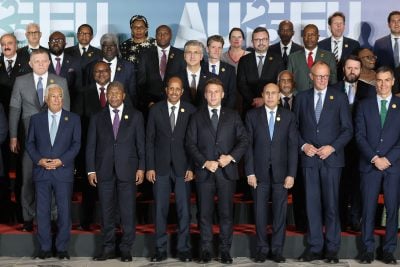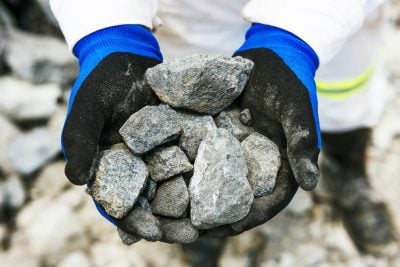The inaugural Korea-Africa summit took place in Seoul this week as the Asian country seeks to develop stronger ties with a continent that is increasingly seen as vital for access to the critical minerals on which the South Korean technology industry depends.
The summit, which was attended by at least 30 African heads of state, saw several major deals signed.
South Korea pledged to donate $10bn to Africa in foreign aid by 2030 and to offer a further $14bn in export credits to Korean firms wanting to enter African markets. Seoul also signed a $2.5bn concessional loan agreement with Tanzania, with the money being used to fund significant upgrades in the healthcare infrastructure in Zanzibar. A similar $1bn deal was signed with Ethiopia to fund development in infrastructure, science and technology, health, and urban development.
The summit had a heavy focus on critical minerals, with South Korea and African leaders agreeing to launch a “critical minerals dialogue”. President Yoon Suk Yeol said the dialogue would aim to “set an example for a stable supply chain through mutually-beneficial cooperation and contribute to sustainable development of mineral resources around the world”.
Seoul has turned to Africa for resources such as graphite, which is essential for the production of batteries and of electronics. This is particularly significant since neighbouring China has tightened export controls for such critical minerals.
Emilia Columbo, a non-resident senior associate to the Africa Programme at the Center for Strategic and International Studies’ Africa Programme in Washington DC, says the summit is “indicative of an elevation in South Korea’s outreach to the continent, a practice that Africa’s more traditional partners, such as the US, France, China, and Russia, have long embraced and that has the potential to build relationships at the highest level of government”
“South Korea’s policy towards Africa has historically been driven by Korea’s need for political clout, access to resources, and promotion of soft power,” she explains. “The prominence of critical minerals during this summit, for example, combined with an emphasis on boosting Korean business investment on the continent, suggests that economic, resources, and soft power issues are important motivations for this growing attention.”
Matthew Minsoo Kim, a researcher into Korean-African relations based in Seoul, tells African Business that “we have seen South Korean companies actively investing in African countries like Egypt and Ghana – and the Korea-Africa summit is another good step forward in this direction.”
However, both Kim and Columbo believe that more work is required if both sides are to grasp the potential economic opportunities associated with deeper ties. Kim says that “summits like this one should be held more often – not just at a national level; there should be more interaction at the academic and business level too.”
Columbo similarly notes that “follow-through and consistency will be key.”
“Summits such as these are not uncommon, but the outputs are sometimes uneven,” she tells African Business.
“Following through on commitments, reinforcing the progress made during the summit with bilateral visits, and sustaining this high level of engagement will be key in showing African leaders the depth of Korean commitment to enhancing the country’s relationship with the continent.”
Want to continue reading? Subscribe today.
You've read all your free articles for this month! Subscribe now to enjoy full access to our content.
Digital Monthly
£8.00 / month
Receive full unlimited access to our articles, opinions, podcasts and more.
Digital Yearly
£70.00 / year
Our best value offer - save £26 and gain access to all of our digital content for an entire year!

 Sign in with Google
Sign in with Google 



